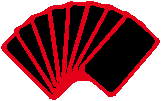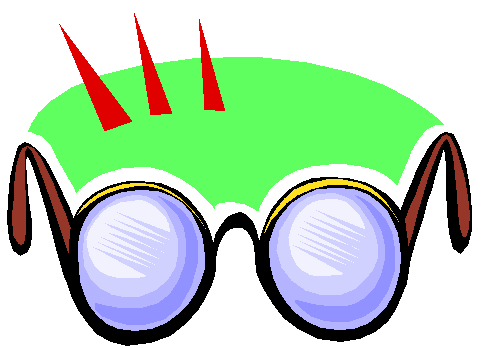|
Site Features
Since learners learn best using different formats and modalities, this site attempts to make material available in a number of different ways. Everything on this site is free and requires no registration or login.
Each Saturday, for over 1,000 weeks now, a "Case of the Week" is posted as an unknown on our Facebook and Instagram pages, linked to a discussion of the diagnosis and findings.
There is a considerable amount of additional material (see below) available in PowerPoint, HTML5, PDF and interactive quiz and flashcard formats. Index pages for each of these can be accessed from the drop-down menu at the top of each of the pages on the site.
Material felt to be of special interest to medical students and those beginning in radiology is aggregated in its own section.
In addition to the well over 10,000 pages of content on this site, other material is presented in video podcasts available through the iTunes Store for free download.
And last, but certainly not least, these is the 5th edition (2023) of a much-expanded textbook covering the fundamentals of radiology published by Elsevier entitled Learning Radiology: Recognizing the Basics by the same author as this website and whose ownership entitles you to web-based quizzes and tutorials that reinforce the basic concepts.
 Lectures - Most lectures are available in universal HTML5 format. High speed internet access
is best. The site has been tested on Internet Explorer, Firefox, Chrome and Safari. Lectures - Most lectures are available in universal HTML5 format. High speed internet access
is best. The site has been tested on Internet Explorer, Firefox, Chrome and Safari.
 Notes - Handout notes are usually short bulleted material derived from the lectures plus many more
sets of notes on various diseases, mostly in chest, cardiac, bone and GI. Notes - Handout notes are usually short bulleted material derived from the lectures plus many more
sets of notes on various diseases, mostly in chest, cardiac, bone and GI.
 Images - JPEG images suitable for downloading shown first
in thumbnail size. Most of the
Case of the Week images are eventually available here. Images - JPEG images suitable for downloading shown first
in thumbnail size. Most of the
Case of the Week images are eventually available here.
 Archives - Previous Case of the Week files are included. Archives - Previous Case of the Week files are included.
 Flashcards - Pull down lists of differential diagnoses
presented in a way that allows you to quiz yourself. Flashcards - Pull down lists of differential diagnoses
presented in a way that allows you to quiz yourself.
 Most Commons Lists - Drop-down lists of some of the most common causes
of various findings, signs and symptoms mostly in the areas of GI, chest, bone
and cardiac radiology. Most Commons Lists - Drop-down lists of some of the most common causes
of various findings, signs and symptoms mostly in the areas of GI, chest, bone
and cardiac radiology.
 Pictorial Differential
Diagnoses - Groups of images categorized by lesions that appear in a similar way or affect
the same body part shown side-side-side for comparison. Pictorial Differential
Diagnoses - Groups of images categorized by lesions that appear in a similar way or affect
the same body part shown side-side-side for comparison.
 Quizzes - A series of image-centered, short (5 question) quizzes
with immediate feedback on assorted topics for beginning and more advanced
learning. A "Best Scores" table is shown and you have the ability to e-mail the
quiz and the correct answers back to yourself. Quizzes - A series of image-centered, short (5 question) quizzes
with immediate feedback on assorted topics for beginning and more advanced
learning. A "Best Scores" table is shown and you have the ability to e-mail the
quiz and the correct answers back to yourself.
 "Recognizing
Series - Designed for medical students or those just starting out
and intended to
introduce fundamental concepts in chest, bone, cardiac and GI radiology,
especially. They are intentionally short in duration. Many
of the modules contain short quizzes at the end of the exercise for self-testing. "Recognizing
Series - Designed for medical students or those just starting out
and intended to
introduce fundamental concepts in chest, bone, cardiac and GI radiology,
especially. They are intentionally short in duration. Many
of the modules contain short quizzes at the end of the exercise for self-testing.
 Resources -
are short articles, pearls, signs, important points, lists, that can accessed from this index page. Resources -
are short articles, pearls, signs, important points, lists, that can accessed from this index page.
 Packets -
contain a set of unknown images suitable for medical students. They are used as
unknowns in our program so the answers are not posted. Packets -
contain a set of unknown images suitable for medical students. They are used as
unknowns in our program so the answers are not posted.
 Video Podcasts - On an occasional basis, a video podcast containing images suitable for the small screen and centered on a topic in radiology is made available through the iTunes Store for download to your mp3 player or to view on your computer. Video Podcasts - On an occasional basis, a video podcast containing images suitable for the small screen and centered on a topic in radiology is made available through the iTunes Store for download to your mp3 player or to view on your computer.
 Contact - Contact information, authorship of
this website and legal Information are contained here. Contact - Contact information, authorship of
this website and legal Information are contained here.
 Permission to Re-Use Content or Publish - Permission to Publish guidelines are contained here Permission to Re-Use Content or Publish - Permission to Publish guidelines are contained here
General Conventions
- site-wide
Clicking on the LearningRadiology.com banner
at the top of every page always returns you to the Home Page.
Almost all photos are hyperlinked to a larger image. Click once on the photo to
enlarge the image.
 The owl graphic indicates additional
information related to the same subject is available by clicking on the
hyperlink. The owl graphic indicates additional
information related to the same subject is available by clicking on the
hyperlink.
 "Take Home Point" - the moving-men
graphic means there is a "Take Home Point" (an important point) attached to the
graphic. "Take Home Point" - the moving-men
graphic means there is a "Take Home Point" (an important point) attached to the
graphic.
 On some pages, the blue balloon indicates the presence of a nearby hyperlink with additional content. On some pages, the blue balloon indicates the presence of a nearby hyperlink with additional content.
|